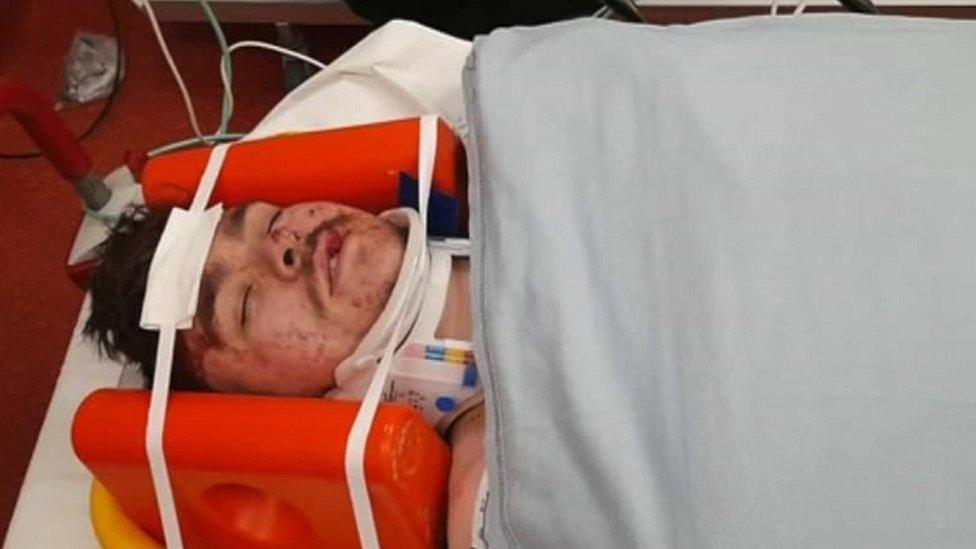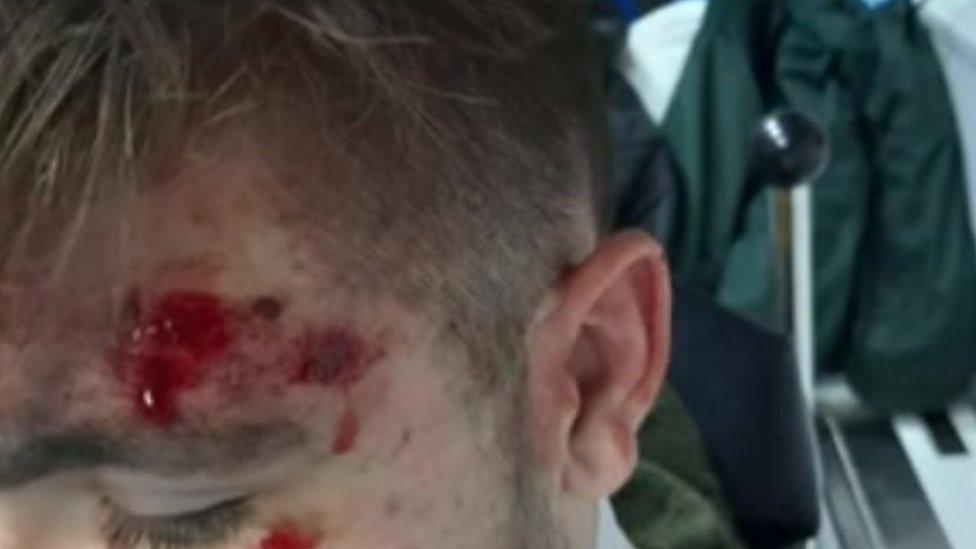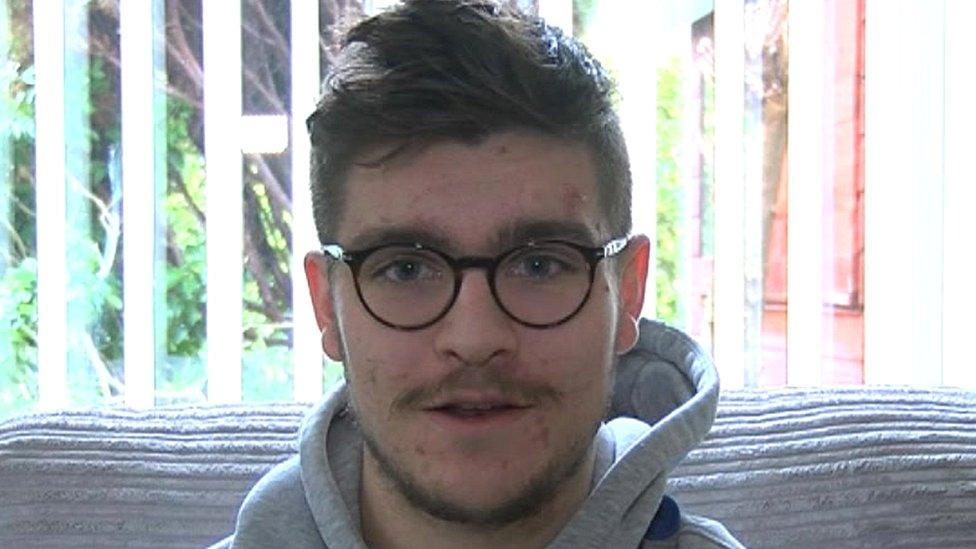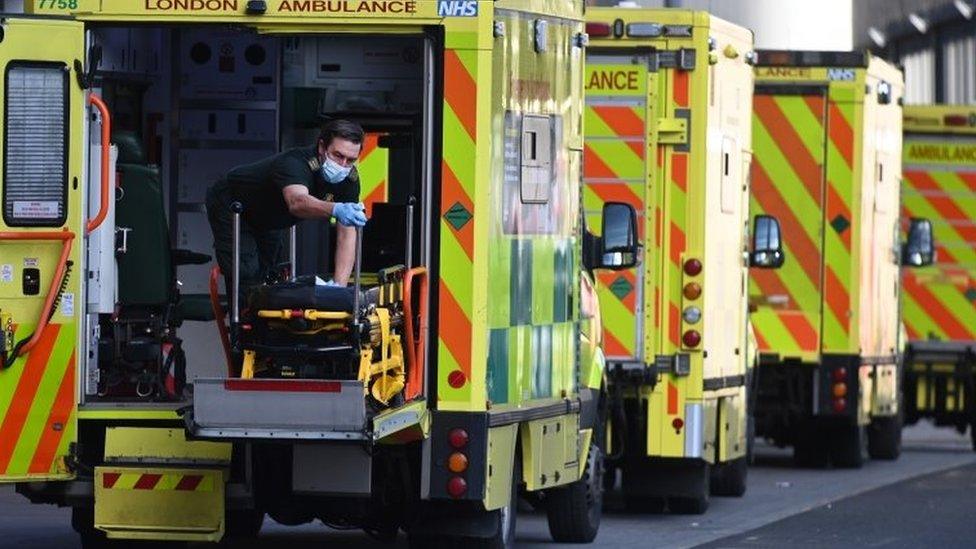Injured Boston teenager's two-hour wait for ambulance
- Published

James Rawlings' father, Mark, says it was "heart-breaking" to watch his injured son wait so long for an ambulance
An ambulance service has apologised after an injured teenager had to wait by the side of a road for two hours before being treated.
James Rawlings, 18, from Boston, Lincolnshire, was knocked off his bike while cycling home on 1 December.
His father said it was "appalling" it took so long for an ambulance to come.
East Midlands Ambulance Service (EMAS) said it was sorry for the delay but added the initial phone call had been categorised as not life-threatening.
Mark Rawlings, James' father, said he had been notified about his son's situation shortly after it happened on Tattershall Road at about 16:30 GMT.
"It was the worst phone call any parent would ever want," he said.

James was bleeding from a head injury after being knocked off his bike by a car
He said he rushed to the scene, which was a few minutes from their home, to find his son by the roadside.
The police had told James that an ambulance had been called, but it could take about two hours to arrive, Mr Rawlings said.
"We understand at the minute that ambulances, like most services, are stretched to the limit, but given the level of the incident we really are appalled it took so long," he said.
Mr Rawlings said he eventually made a follow-up 999 call, which prompted the ambulance service to move his son to the higher life-threatening category.
'How much longer?'
James said he had no idea what was happening during his wait for an ambulance and was "really quite scared".
"My teeth were chattering. I was freezing. I was, like, how much longer? I didn't know what was going to happen," he said.
Sue Cousland, divisional director at EMAS, said the ambulance service was sorry a crew was unable to get to him sooner.
"We recognise the distress this will have caused," she said.
She added 999 calls were assessed based on the information provided by the caller, with life-threatening emergencies prioritised.
Based on the initial call, the teenager's situation was not classed as life-threatening, Ms Cousland said.

James is now recovering from his injuries at home in Boston
She added that after Mr Rawlings' follow-up call, an ambulance was on the scene within seven minutes.
Nationally, the ambulance service aims to reach nine out of 10 patients who are categorised as an emergency within 40 minutes and to patients with life-threatening illnesses or injuries within an average of seven minutes.
James was subsequently found to have a dislocated shoulder and injuries to his head and leg and he was badly bruised.
He spent a week in hospital after the collision, which is now being investigated by Lincolnshire Police.
Mark Rawlings said he did not blame front-line staff, but it had been "heart-breaking" to watch his son lying on the side of the road for so long.
"I am extremely disappointed. It could have been fatal or life-changing injuries. I am very angry this wasn't prioritised," he said.

Follow BBC East Yorkshire and Lincolnshire on Facebook, external, Twitter, external, and Instagram, external. Send your story ideas to yorkslincs.news@bbc.co.uk, external.
Related topics
- Published11 November 2021
